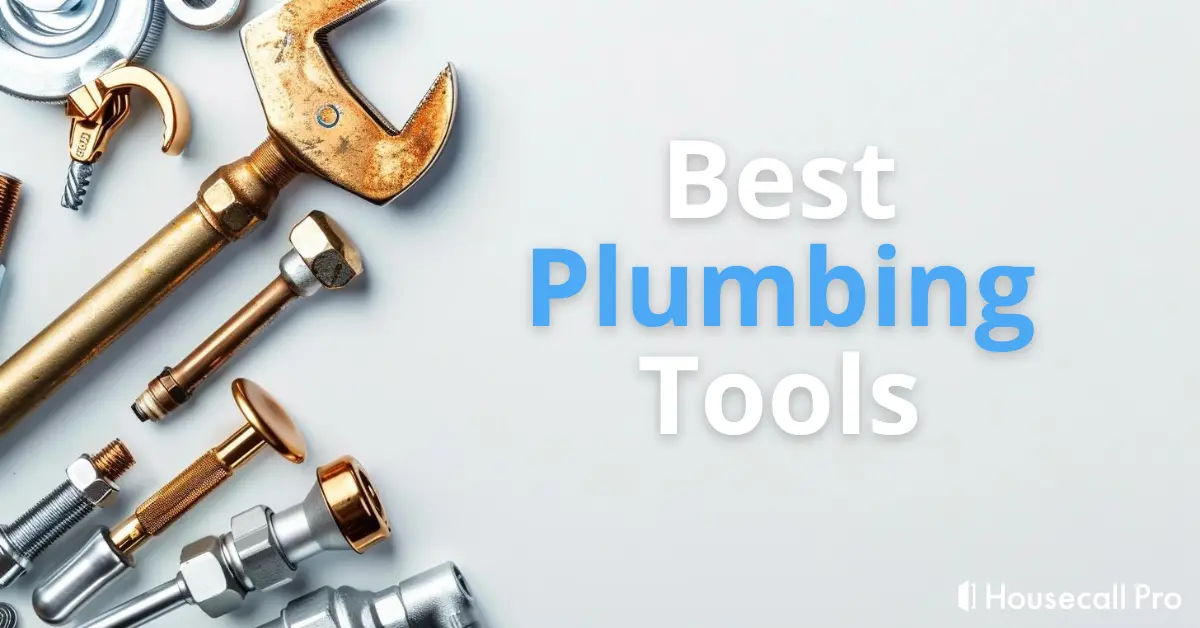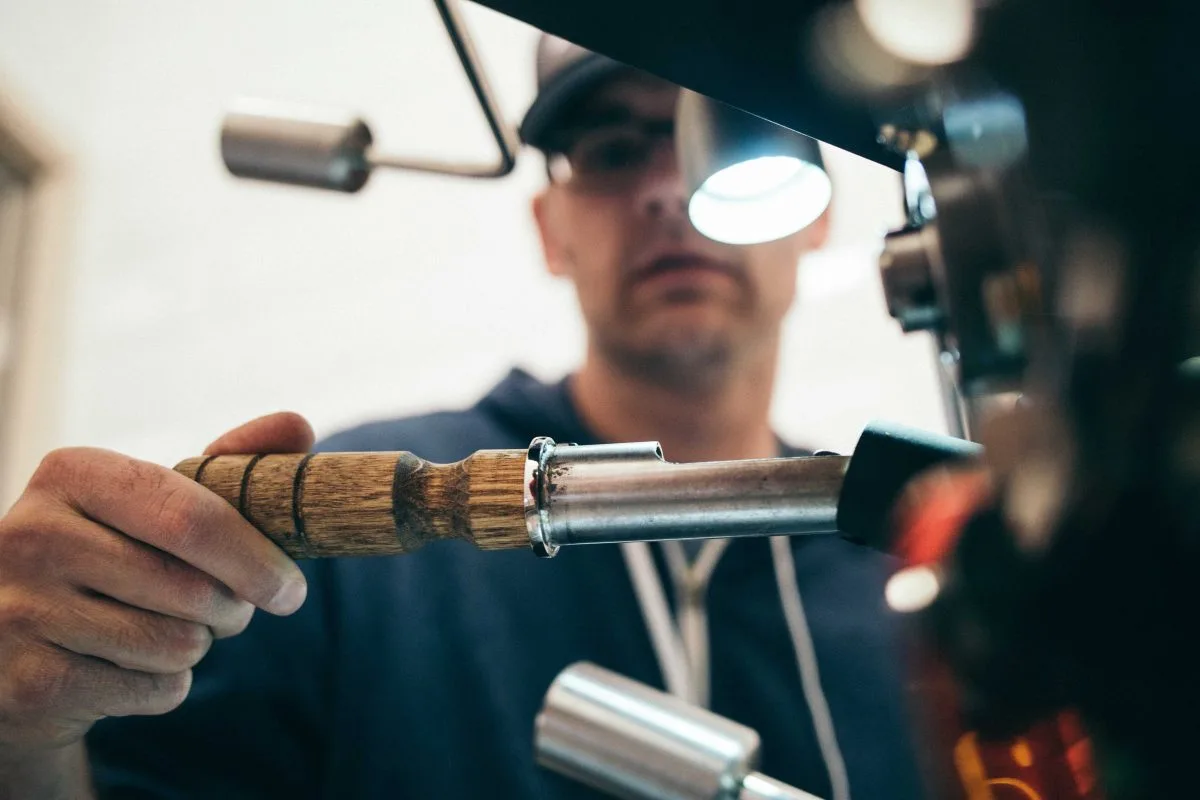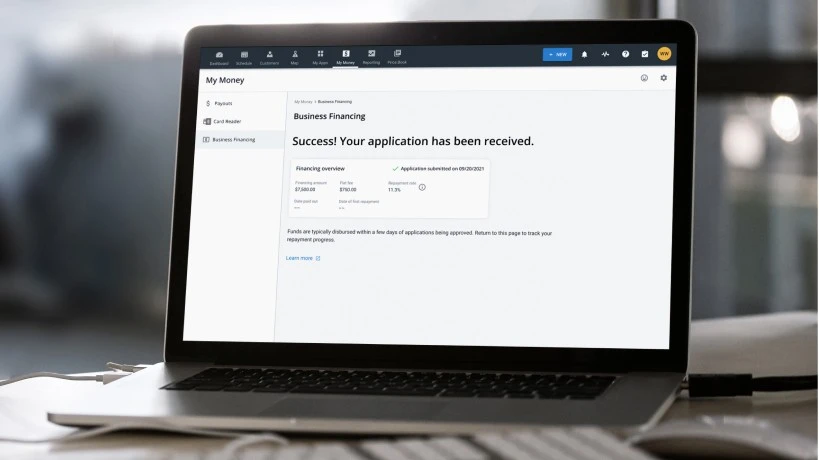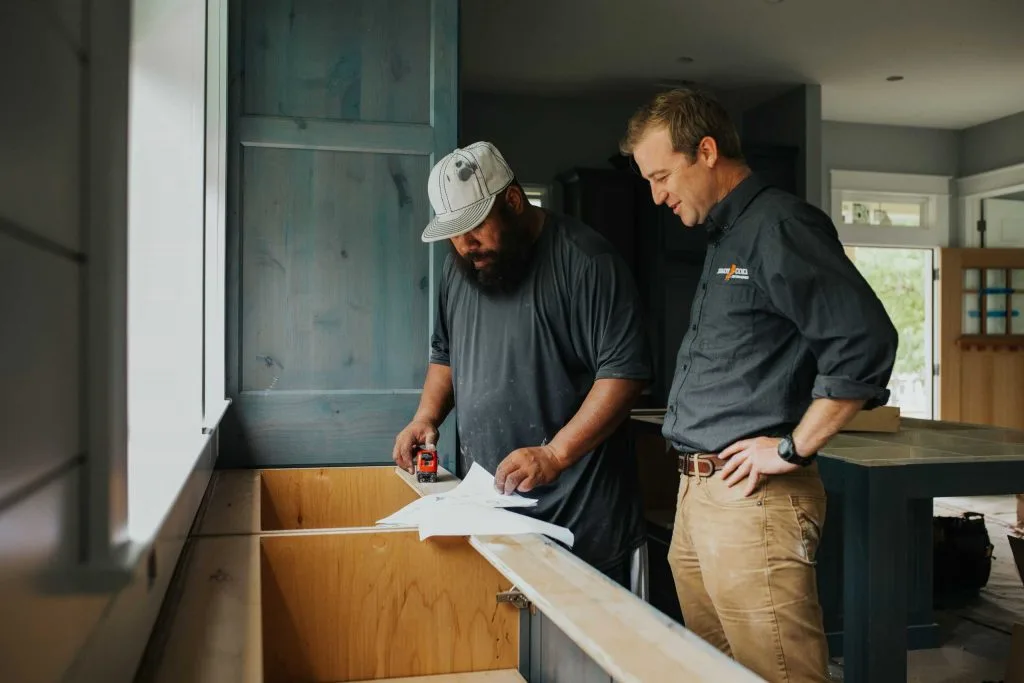
Every day, Americans face challenges with their plumbing: dripping faucets, running toilets, leaky pipes, low water pressure, sewer system backups, and, yes, the inevitable clogged drain. While the homeowner can handle some issues, others are best left to the professionals. And that’s where plumbers come to the rescue.
But when plumbers show up to residential homes (or commercial businesses) for a repair, they don’t come empty-handed. They often arrive in a van or truck full of almost every tool and contraption you can imagine.
And why so many tools? Well, it turns out that as plumbing has evolved over the years, the tools required to do the job have changed as well. That means there is a need for lots of different equipment so that plumbers don’t have to run back to the warehouse to get just the right instrument to do the job—something that can be exceptionally frustrating for a homeowner who can’t use their bathroom.
Whether you’ve been in the plumbing business for a while or your small business is just starting out, you want to ensure you have the best plumbing tools to do the job right the first time. After all, satisfied customers are far more likely to call you back should a different plumbing problem arise, and they’re all far more likely to recommend you to their family members or friends. So, what are the top 35 best and must-have plumbing tools for plumbers in 2024? Check it out—we’ve got the master list.
Plumbing Hand Tools
The first priority plumbing tool on the list is the hand tool. Plumbing hand tools are indispensable in any plumber’s toolbox, serving as the backbone for various routine tasks and emergency repairs. These tools are necessary because they offer the precision, control, and flexibility to tackle specific problems—from tightening fittings to adjusting connections. Here are the common plumbing hand tools you need in your bag of tricks—aka plumber’s toolbox.
Wrenches
Here are the plumbing wrenches you must have on hand for any residential or commercial plumbing project.
- Pipe Wrench: This tool is a staple for gripping and turning pipes, and it’s necessary for any plumbing job that involves threaded pipes. Many plumbers prefer Crescent, a popular brand that offers both cast iron and aluminum pipes in various lengths. Be sure to have a 14” and 18” on hand to get you started. Favorites include the Crescent Tool Wrench Pipe Cast Iron 14′ K9 Teeth and the Crescent Tool Wrench Pipe Aluminum 18′.
- Adjustable Wrench: Perfect for adjusting nuts and bolts, this wrench is key to securing fittings and assemblies tightly. For most residential plumbing jobs, a 10” wrench will suffice. However, we recommend that you have an assortment of sizes on hand for those just-in-case moments.
- Basin Wrench: Specially designed for working under sinks, this wrench is handy for tightening or loosening faucet nuts, making it a go-to for faucet installations. The Milwaukee 1.25 in. Basin Wrench is a popular choice because it can get into super tight spaces.
Pipe Work
Next are the various tools you’ll need for pip work. Here is a starting point for new business owners.
- Hacksaw: This tool is useful for cutting through pipes, hardware, and other metal or plastic materials encountered in plumbing. Have backups of 12” bi-metal blades on hand, which can be used for cutting steel, wood, and plastic. You’ll need a 32 TPI for the cleanest cut possible if you need to cut copper.
- Pipe Cutter: While a hacksaw can be helpful, sometimes a pipe cutter is the better solution. You may wish to have on hand four types: wheel pipe cutters, ratchet pipe cutters, internal pipe cutters, and chain pipe cutters.
- Plumber’s Tape (Thread Seal Tape): This tape is invaluable for sealing pipe threads to prevent leaks at the connections. One roll is never enough, so make sure you are well-stocked.
- Tubing Bender: This tool bends pipes without crimping or flattening them. It allows plumbers to manipulate piping to fit any space or angle required.
- Channel Locks (Tongue-and-Groove Pliers): These pliers are great for gripping, tightening, and loosening, offering versatility for various pipe sizes and shapes. Start with at least two 12” channel locks in your toolbox.
- Pipe Threader: This tool is invaluable when plumbers need to fashion a tight, secure fit for threaded pipe connections. It is designed to create custom-threaded ends on pipes.
- Mole Grips: Mole grips, also known as locking pliers or Vise-Grips, offer a unique advantage over other pliers due to their adjustable locking mechanism. This feature allows them to clamp onto a workpiece securely, maintaining a grip without continuous pressure from the user. They are versatile for holding, tightening, or turning objects, providing a hands-free option not offered by traditional pliers.
Drain Cleaning
Though dripped faucets and running toilets seem to be the top reasons plumbers are called to homes and businesses, clogged pipes come in third. A clogged pipe may render a plumbing system unusable until it is fixed. Here are some of the drain-cleaning tools that plumbers need in their arsenal.
- Plunger: Ideal for clearing blockages in toilets, sinks, and drains, it’s often the first tool reached for in quick-fix situations. Plumbers should have all three types on hand: the toilet (or flange) plunger, a sink or cup plunger, and an accordion plunger.
- Hand Auger (Drain Snake): When the plunger is ineffective, plumbers need to access further down the drain to try to find the source of a clog. That’s where a hand auger can help. This tool consists of a flexible steel cable “snaked” down the pipe by hand to clear clogs deep within the drain.
- Closet Auger (Toilet Auger): This tool is specifically designed for toilets and can navigate the unique bends in toilet plumbing.
- Motorized Drain Auger: Some plumbers prefer a motorized option, especially for use with larger pipes. This electric or battery-powered tool can handle tougher clogs without the need for manual labor.
- Hydro Jet: Over time, debris and build-up in pipes are inevitable, especially when non drain-friendly items are sent down the disposal or toilet. A hydro jet is a high-pressure water jet that can help blow out drain debris.
Plumbing Safety Tools
Plumbers are exposed to dangers every day that they go to work. They may be exposed to harmful chemicals and biological hazards. They are at risk for physical injury, including burns, cuts, bruises, and broken bones from falls and working in right spaces, and electrical hazards.
That’s why some keep safety tools in their work vans. Here is what you need to have. And remember, having these items isn’t enough. To protect yourself, you need to wear them.
- Safety Glasses or Goggles: Protect eyes from flying debris, harmful gasses, and chemicals.
- Flashlight and Headlamp: Plumbers often work in dark spaces. While you should keep a flashlight in your toolbelt, you may also want a headlamp for projects requiring both hands.
- Gloves: Heavy-duty, waterproof gloves protect hands from sharp objects, hot materials, and hazardous chemicals.
- Ear Protection: Earplugs or ear covering to protect against noise from heavy machinery and tools, which can cause hearing damage.
- Respirator or Mask: To safeguard against inhalation of hazardous fumes, dust, and biological agents.
- Safety Boots: Slips and falls are the most common injuries that plumbers experience. This should come as no surprise due to the wet conditions that plumbers often work in. So, boots with slip-resistant and puncture-resistant soles and steel toes provide protection from falling objects and sharp items on the job site.
- Hard Hat: To protect the head from impacts caused by tools, pipes, or other materials, especially when working in areas with overhead hazards.
- Face Shield: This provides additional face protection when working with hazardous materials or when splashing is risky. Be sure to wear a face shield whenever working with toilets or septic systems where you could come into contact with biomaterials.
- Knee Pads: To protect knees when kneeling for extended periods, helping prevent long-term joint damage.
- Lockout/Tagout Kits are essential for safely isolating electrical and mechanical energy sources during repair and maintenance to prevent accidental start-ups.
- High-Visibility Clothing: This ensures plumbers are easily seen in low-visibility environments or when working near roads or moving equipment.
Plumbing Specialty Tools
Beyond the basic hand tools every plumber carries, specialty tools are specifically designed for more complex tasks. These advanced tools provide solutions where standard equipment might fall short. Modern plumbing demands precision and versatility, and with the latest in technology and design, today’s plumbers are equipped to easily handle intricate repairs, detailed diagnostics, and challenging installations.
Here are some examples of specialty plumbing tools that you might want to invest in as your business grows.
- Plumbing Camera: As technology has advanced for those of us who work in an office, it has also advanced across the trades, especially plumbing. Visual inspections of sewer systems have become increasingly popular, but to do so, you need technology—and a plumbing camera is the obvious solution. Plumbing cameras consist of a high-resolution camera affixed to an insertion rod or tube—like a selfie stick—that can be inserted into the sewer to give a plumber an idea of what they are working with.
- TurboTorch: Another popular specialty tool for plumbers is the TurboTorch. While we could have listed this earlier as a pipe tool, its uniqueness better fits in our list of specialty tool recommendations. A TurboTorch is a tool used primarily for soldering and brazing pipe fittings. It uses high-intensity flames powered by acetylene or propane to heat metals quickly and efficiently, allowing plumbers to make strong, leak-proof joints in less time.
Get In Touch: 858-842-5746
Let us earn your trust
See plan options and feature breakdown on our pricing page.
Plumbing Business Tools
Whether you have a one-plumber show or a team of plumbers at your disposal—pun intended—the chances are that you’ll be out of the office servicing customers more often than not.
That’s why it is so important that you invest in tools that can make you and your business operations more effective. From tools to help with scheduling and dispatching to professional proposals and invoices to customer management tools, these platforms can make you more effective as a business owner—and your employees will appreciate how these tools help them to get paid on time, too.
Here are the plumbing business tools that you need in your office toolbox.
- Dedicated Phone Line and Phone Tracking: While many plumbers start out just using their personal cell phones, this can quickly disrupt your work-life balance. Plus, having all those calls on your personal device can sometimes make it hard to delineate between personal contacts and customers. Companies like CallRail provide you with a highly effective business line, call tracking capabilities, insights into where calls are coming from, those that convert into paid jobs, and more.
- Virtual Assistant: While you might not need a full-time receptionist or assistant, virtual assistants can come in handy when you need help. You can either hire a human virtual assistant such as through HCP Assist or use a voice-activated tool like Alexa.
- Mobile Credit Card Reader: Gone are the days of paper invoices left in a customer’s door or on their kitchen counter at the end of a job. Today’s consumers want instant gratification in getting their plumbing problem fixed and paying their bill. We highly recommend that all plumbers have a mobile credit card reader on hand for those customers who want to pay, now. After all, it is never a good idea to give up money from a customer who is ready to hand it over. Instapay helps you get payment in as little as 30 minutes compared to other systems that can take one to five business days.
- Website: If your plumbing business doesn’t have a website, you could be missing out big time. Today’s consumers spend almost seven hours a day online. So if they have a plumbing problem, they aren’t going to dig out that old Yellow Pages—if those even exist anymore—instead, they are going to go to Google or their preferred search engine to look for a plumber near me. And if you don’t have a website, especially one that is user-friendly and SEO-optimized, you’re missing out on business that could be yours. But don’t worry, you don’t have to build a website alone. Websites from Housecall Pro can help.
- Google My Business: Okay, you might be wondering why this made our list of the best plumbing business tools list, but let’s face it—you are in the business of servicing local customers. So, you need to ensure that not only your website shows up at the top of Google results, but that your business shows up in the Google My Business listings. Setting up a business listing is easy, especially if your business operates out of a physical location like an office building or warehouse. But, if you need help, your website firm or digital marketing agency can help.
- Email Marketing System: You need the ability to send marketing communications to customers, and as a plumber, email provides you with a great way to not only educate customers on best practices to protect their plumbing systems but to make customers aware of special offers or promotions that you might be running. Avoid using your personal email or the Gmail account tied to your website from which you might send emails manually. Invest in a high-quality and easy-to-use email solution like automated marketing.
- Plumbing Management Software: While you can invest in separate programs for invoicing, payroll, project scheduling, dispatch, etc., investing in one program that is integrative with all functions is often the better solution. Housecall Pro offers integrated all-in-one plumbing software to help you manage your business more efficiently and effectively.
Get Started Today with Housecall Pro for Your Plumbing Business
At Housecall Pro, we’re in the business of helping small business owners run their businesses more efficiently and effectively. Whether you need an all-in-one solution or one-off support for payroll, invoicing, scheduling, etc., we can help. Sign up today for your free trial.
Plumbing Tools Frequently Asked Questions
- How much does it cost to start a plumbing business?
-
The cost to start a plumbing business can vary significantly depending on factors like location, the scale of operations, and initial investments in tools, marketing, and other essentials. While these costs can fluctuate based on the state and the scope of services offered, based on our experience working with plumbers across the U.S., prospective small business owners should anticipate an initial outlay ranging from $10,000 to $50,000.
- Do I need to be licensed to be a plumber?
-
In most states, you must be licensed to work as a plumber. While specific plumbing licensing requirements can vary, generally, you must be at least 18 years old, registered with your state’s Department of Labor, and have completed an approved apprenticeship program. These stipulations ensure that plumbers meet professional standards of safety and expertise before practicing independently.
- How much should I expect to spend on plumbing tools for my business?
-
The initial investment in plumbing tools for your business can vary, but typically, you should expect to spend between $3,000 to $10,000. This range depends on the quality and scope of tools you choose. High-quality, durable tools may cost more upfront but can offer longer service life and better performance, which is essential for establishing a reliable and efficient plumbing business.
- What is the most important business software that I need for my plumbing business?
-
We suggest investing in an all-in-one plumbing software that can handle scheduling, dispatching, job tracking, invoicing, and payment processing. These systems also enhance customer relationship management by keeping track of service histories and client details, which is necessary for personalized service and customer retention.
Housecall Pro offers tools for creating detailed plumbing estimates on-site or in the office, ensuring pricing consistency and accuracy across your business. This capability can significantly improve job quote conversions. Additionally, the software supports various payment options and integrates with QuickBooks, simplifying the financial aspects of your business and reducing paperwork.






